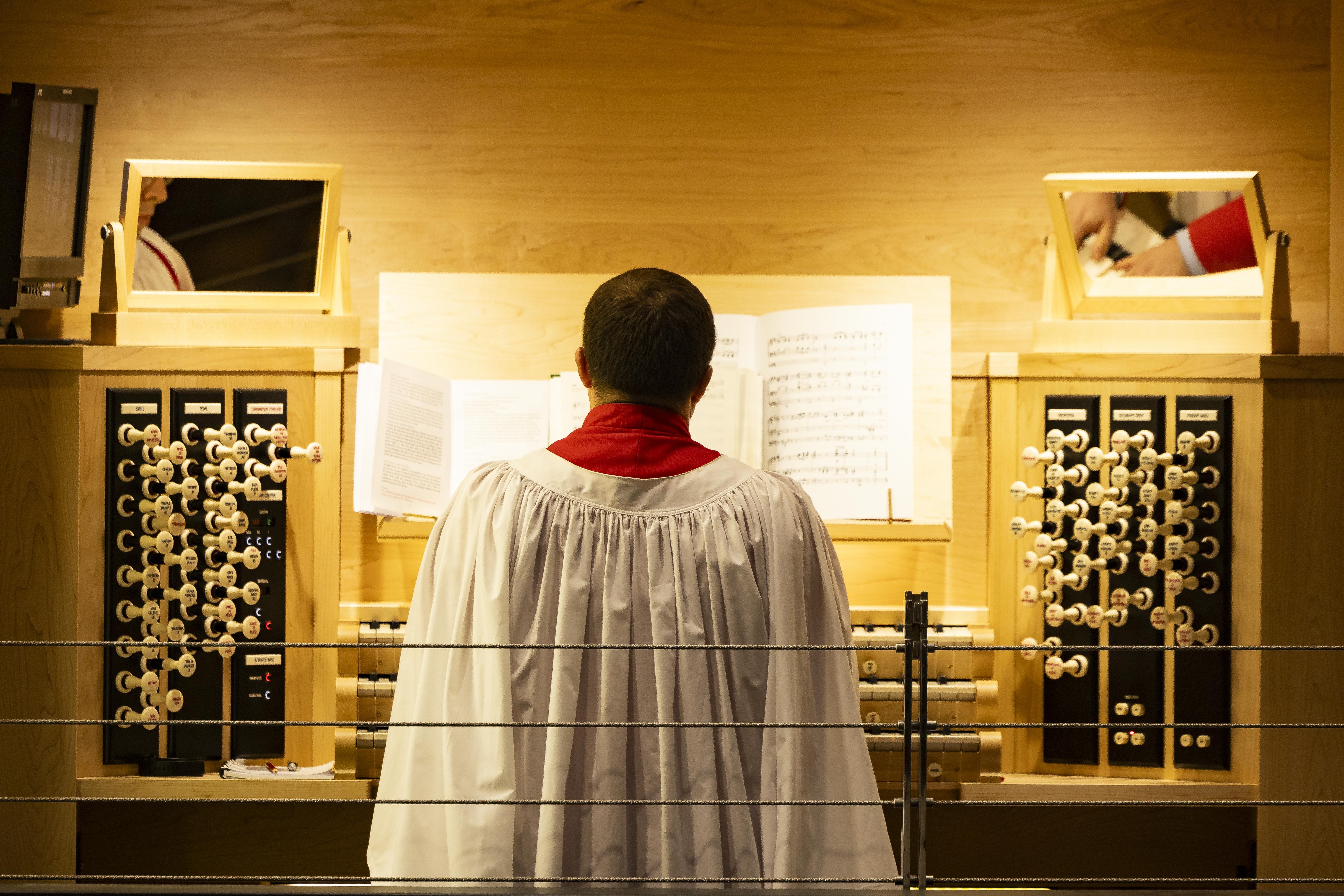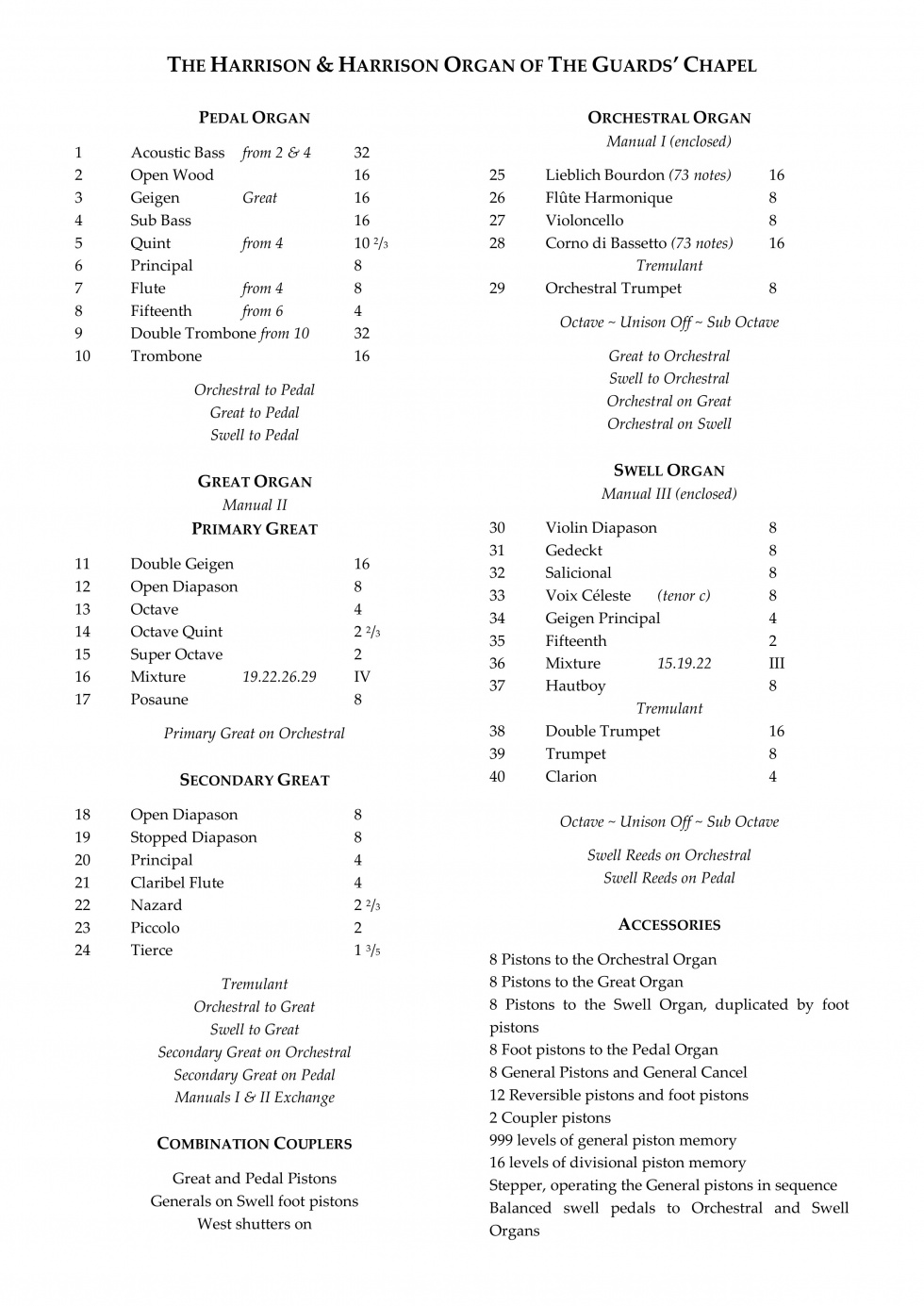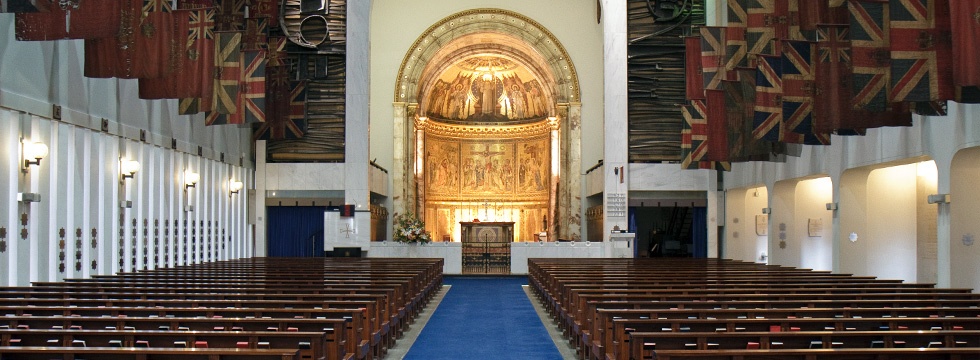The Organ of The Guards’ Chapel

Completed in 2024, The Guards’ Chapel is home to one of the finest new pipe organs to have been built in the UK in recent years. With a relatively small footprint, the new instrument was ingeniously designed by Harrison & Harrison of Durham, both in terms of its visual impact in bridging the two distinct architectural styles of the chapel, and in its ambitious tonal and musical vision. It takes musical inspiration from Harrison & Harrison’s proud history of building, restoring and maintaining a huge number of the great cathedral organs of the UK, but with some inventive and innovative modern touches. Designed to accompany our professional choir, work alongside military bands & ensembles, and to lead congregational singing, the instrument is also hugely colourful and varied in its tonal palette for the solo organ repertoire. Ranging from quiet, atmospheric string sounds to a thrilling ‘full organ’, the instrument works hand-in-hand with the Chapel’s excellent acoustics.
From an initial report on the old, failing organ in 2015 to the new organ’s first public appearance on Easter Day 2024, the project has aimed to provide a musical instrument of a quality befitting the spiritual home of the Household Division. The realisation of this aspiration marks a major milestone in the musical life of The Guards’ Chapel. Heartful thanks go to the many generous individual donors for funding this ambitious undertaking, as well as the Army Central Fund, the trustees of the Household Division, and the trustees of the Household Cavalry and Foot Guards regiments.
The instrument can be heard on a weekly basis in services, recitals and concerts, full details of which can be found on this website. Organ recitals take place monthly on Thursday evenings at 6.30pm with performers from across the UK and overseas. Please read on for details of the Sponsor a Pipe scheme, the upcoming inaugural recording of the instrument, and a full specification of the instrument.
Sponsor a Pipe
To ensure the new Harrison & Harrison organ stays in perfect condition for the next 50 years, and that the full complement of events for which it was built can continue at The Guards’ Chapel, we are running a sponsor-a-pipe scheme to which anyone can donate. Donors can select any pipe to be associated either with their own or another’s name; alternatively in memoriam. Donors will receive a personal certificate and their names will be recorded in a book on permanent display in the Chapel.
The pipes are assigned to tiers based on size, timbre and visibility:
Tier Four: £30 per pipe
A variety of small and softly-voiced pipes, including the Great 2’ Piccolo.
Sets of three Tier Four pipes can be sponsored at a discounted rate of £75, allowing the donor to sponsor a triad (chord).
Tier Three: £100 Per Pipe
Colourful-sounding pipes, such as the Orchestral 8’ Violoncello.
Tier Two: £200 per pipe
Sizeable and commanding pipes, including the Swell 8’ Trumpet.
Tier One: £250 per pipe
The loudest and/or longest pipes, such as the Pedal 32’ Double Trombone.
Front Pipes: £2000 per pipe
The visible display pipes are allocated on a case-by-case basis.
Please email assistanttreasurer@householddivision.org.uk for further details and to select your preferred pipe(s).
Organ Recording Project
Convivium Records will be undertaking a project in the summer of 2026 to record the organ for the first time. Martin Ford, the Chapel’s Organist & Director of Music, will be performing, and the programme is broadly themed around Remembrance, central to so much of the life of the chapel, including a number of pieces with strong connections to the building, such as Arthur Bliss' Praeludium (Bliss served in the Grenadier Guards). Full details can be found at https://www.crowdfunder.co.uk/p/the-guards-chapel-organ-recording-project, including specific rewards, such as signed copies of the disc, and the chance to sponsor tracks. Any support you are able to give towards this project (which is being generously part-funded by Harrison & Harrison) will be very gratefully received.
Specification




 London for Ceremonial
London for Ceremonial 

